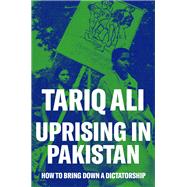Even as they were taking place, the events that shook Pakistan in 1968–69 were underplayed in the Western media. Following a long period of tumult, a radical coalition—led by Zulfikar Ali Bhutto—brought down the military regime of Field Marshal Ayub Khan, just as it was celebrating its tenth “glorious” anniversary.
Students, soon joined by workers and later by virtually every subaltern social stratum (including sex workers), took on the state apparatus of a corrupt and decaying military dictatorship created and backed by the United States. They were joined by workers, lawyers, white-collar employees, and, despite severe repression, they won. The fundamentalist party Jamaat-i-Islami opposed the movement and faced complete isolation. The most popular chants were “Socialism is on the way” and “Food, clothes, shelter.” Ayub was forced to resign. His weak-kneed successor had to permit the country’s first general election, probably the freest in its tormented history.
In his riveting account, written in 1970 in the white heat of events, Tariq Ali offers an eyewitness perspective, showing that this powerful popular movement was the sole real victory of the 1960s revolutionary wave. The election cracked open all the contradictions of the old state, as Ali had predicted. The military and the West Pakistani ruling elite refused to accept the results and embarked on a civil war. The result was the birth of a new state, as East Pakistan broke away to become Bangladesh.








